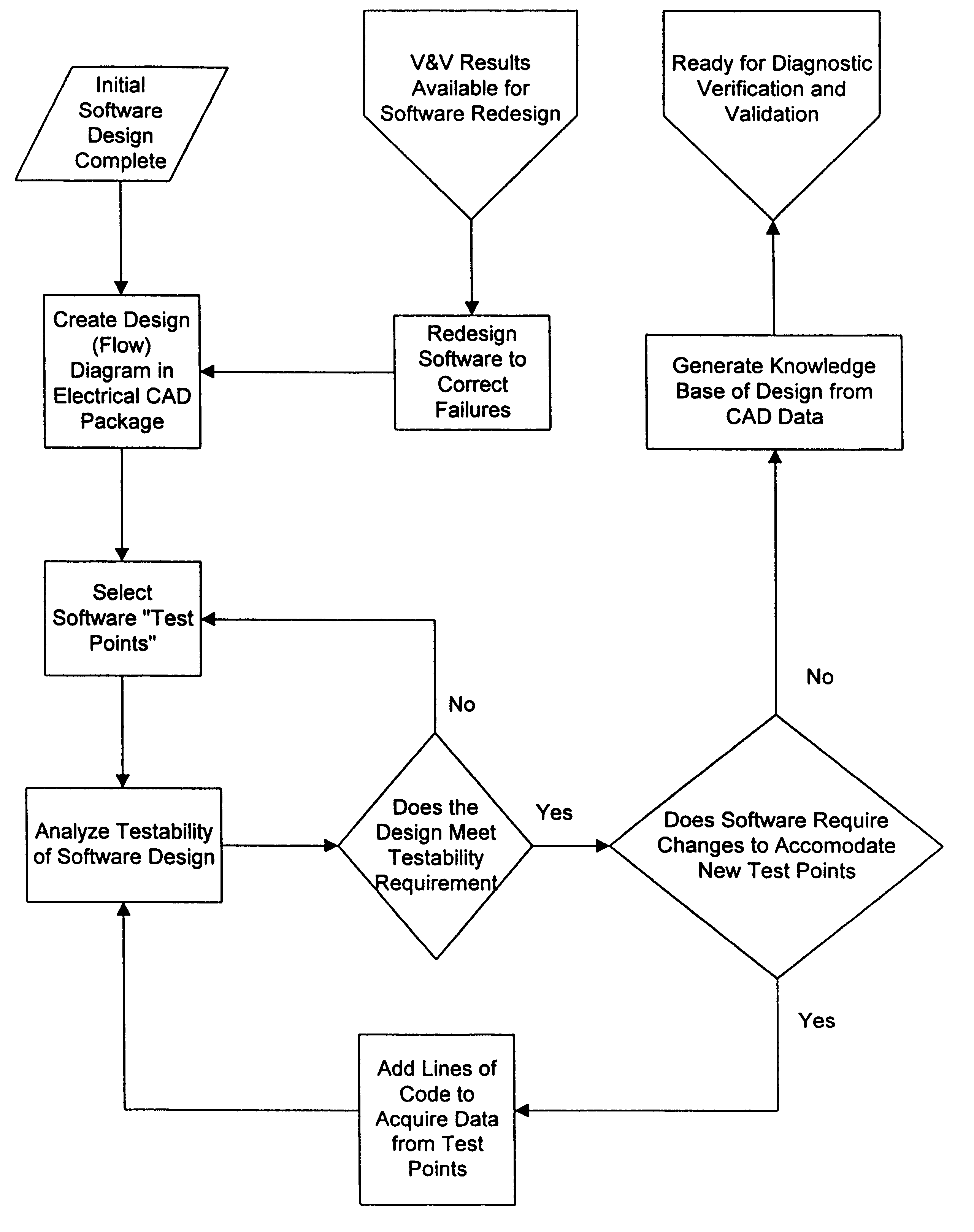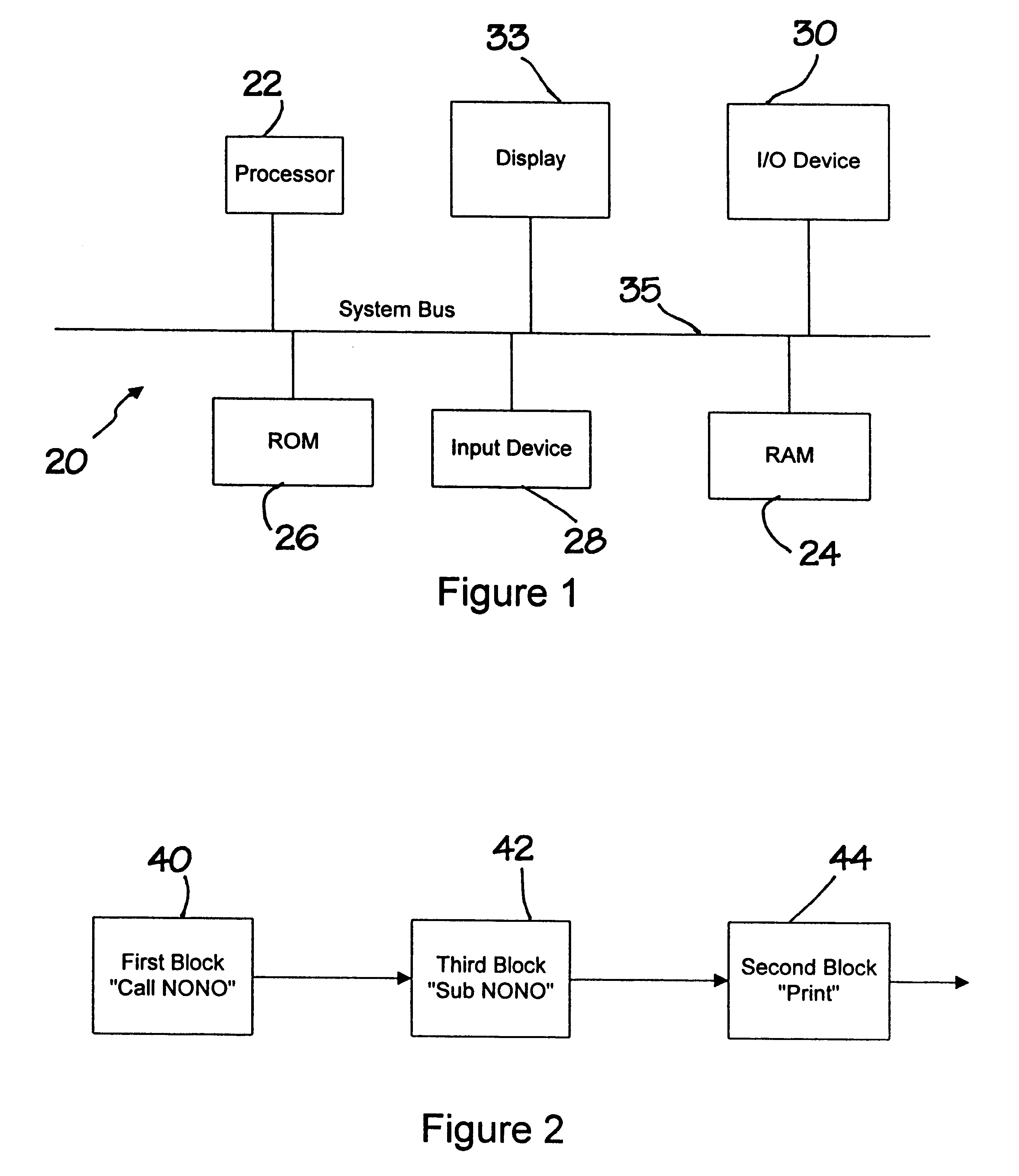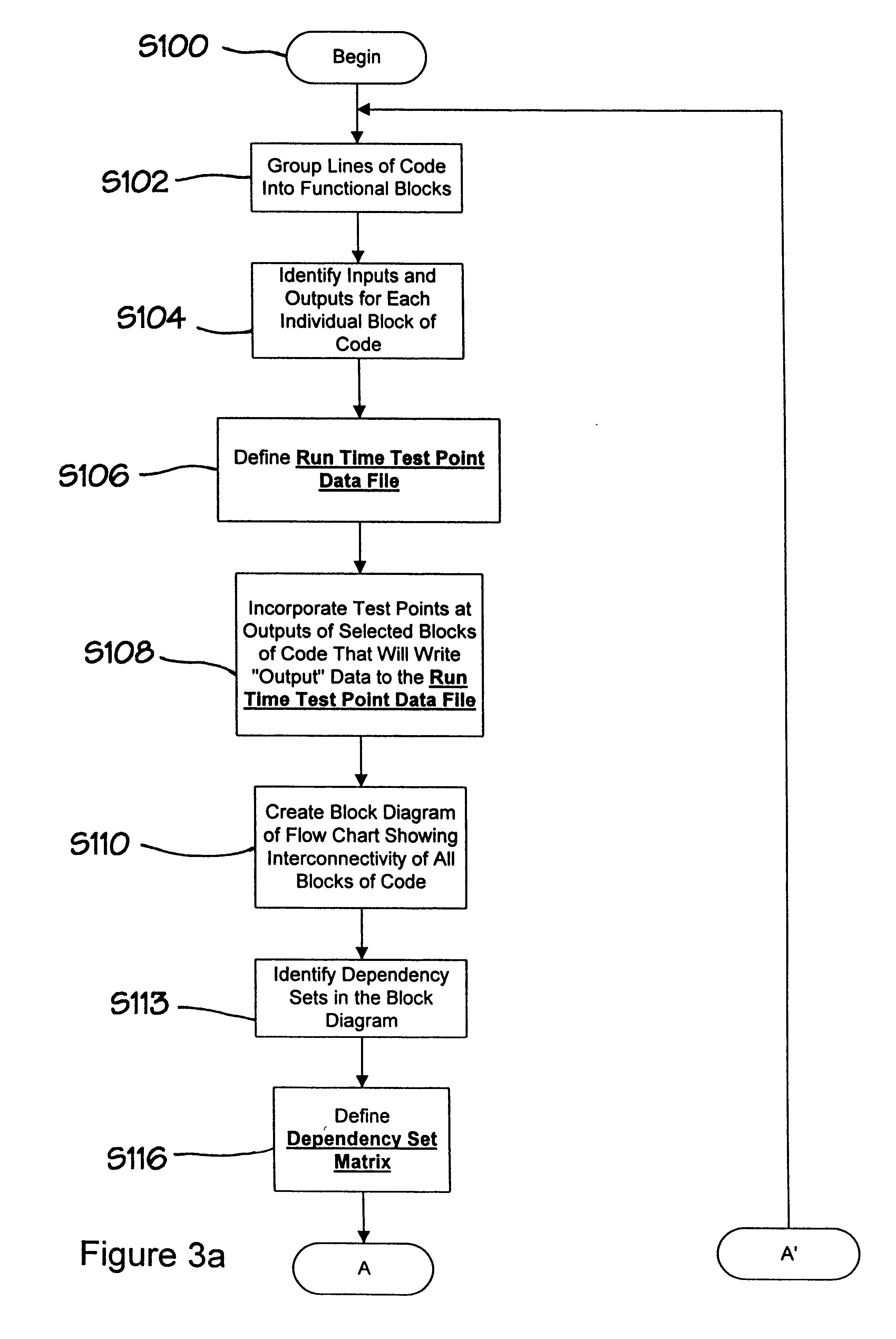Method and apparatus for debugging, verifying and validating computer software
a computer software and verification method technology, applied in the computer field, can solve the problems of time-consuming and costly debugging process, and the process of verifying the operation of software under all operating modes is typically a very time-consuming and costly effor
- Summary
- Abstract
- Description
- Claims
- Application Information
AI Technical Summary
Problems solved by technology
Method used
Image
Examples
Embodiment Construction
Referring more particularly to the drawings, FIG. 1 illustrates a computer system 20 comprising a microprocessor 22, a Random Access Memory (RAM) 24 and a Read Only Memory (ROM) 26. The computer system 20 of the presently preferred embodiment further comprises an input device 28, such as a keyboard, and Input / Output (I / O) device 30 which may be connected to a printer, for example, and a display 33. A system bus 35 interconnects the various components. Other components and buses (not shown) may be connected to the system bus 35 for providing additional functionality and processing capabilities. A network access device may be included, for example, for providing the computer system 20 access to an Internet, intranet or other network system. The computer system 20 of the present invention is configured to implement and / or facilitate the implementation of all of the below-described processes, which are described in connection with FIGS. 2-10.
In accordance with the present invention, the...
PUM
 Login to View More
Login to View More Abstract
Description
Claims
Application Information
 Login to View More
Login to View More - R&D
- Intellectual Property
- Life Sciences
- Materials
- Tech Scout
- Unparalleled Data Quality
- Higher Quality Content
- 60% Fewer Hallucinations
Browse by: Latest US Patents, China's latest patents, Technical Efficacy Thesaurus, Application Domain, Technology Topic, Popular Technical Reports.
© 2025 PatSnap. All rights reserved.Legal|Privacy policy|Modern Slavery Act Transparency Statement|Sitemap|About US| Contact US: help@patsnap.com



